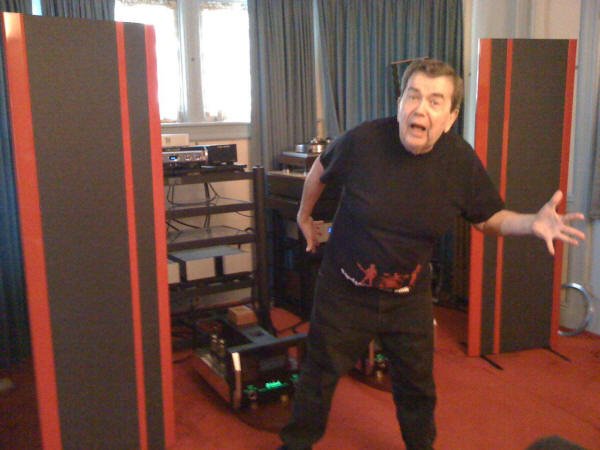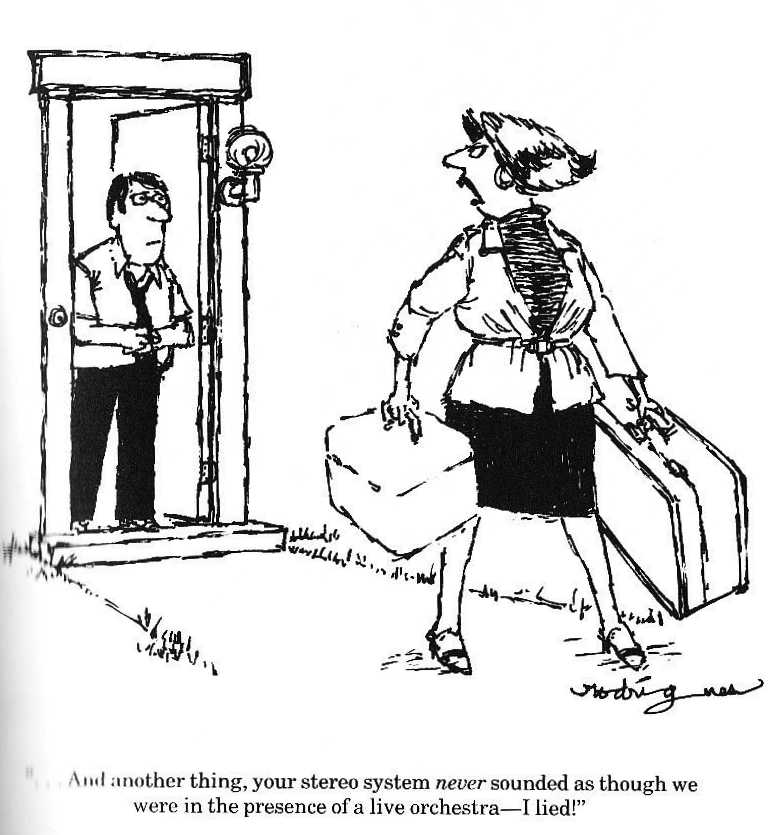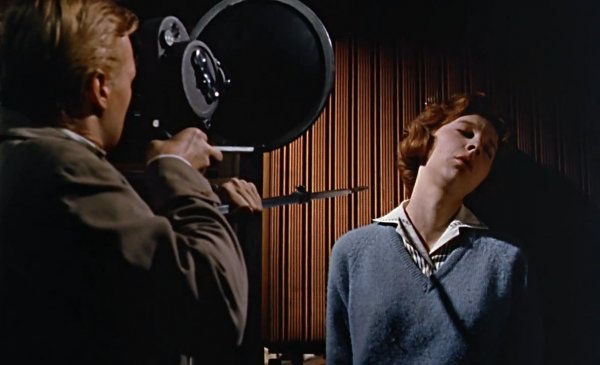AARON COPLAND
"An imaginative mind is essential to the creation of art in any medium, but it is even more essential in music precisely because music provides the broadest possible vista for the imagination since it is the freest, the most abstract, the least fettered of all the arts; no story content, no pictorial representation, no regularity of meter, no strict limitation of frame need hamper the intuitive functioning of the imaginative mind. In saying this I am not forgetting that music has its disciplines: its strict forms and regular rhythms, and even in some cases its programmatic content . . .
Listening is a talent, and like any other talent or gift, we possess it in varying degrees. I have found among music-lovers a marked tendency to underestimate and mistrust this talent, rather than to overestimate it. The reason for these feelings of inferiority are difficult to determine. Since there is no reliable way of measuring the gift for listening, there is no reliable way of reassuring those who misjudge themselves. I should say that there are two principal requisites for talented listening: first, the ability to open oneself up to musical experiences; and secondly, the ability to evaluate critically that experience. Neither of these is possible without a certain native gift. Listening implies an inborn talent of some degree, which again like any other talent, can be trained and developed. This talent has a certain 'purity' about it. We exercise it, so to speak, for ourselves alone; there is nothing to be gained from it in a material sense. Listening is its own reward; there are no prizes to be won, no contests of creative listening. But I hold that person fortunate who has the gift, for there are few pleasures in art greater than the secure sense that one can recognize beauty when one comes upon it. When I speak of the gifted listener I am thinking of the non musician primarily, of the listener who intends to retain his amateur status. It is the thought of just such a listener that excites the composer in me. I know, or I think I know how the professional musician will react to music. But with the amateur it is different; one never can be sure how he will react. Nothing really tells him what he should be hearing, no treatize or chart or guide can ever sufficiently pull together the various strands of a complex piece of music, only the inrushing floodlight of one's own imagination can do that . . .
The amateur may be too reverent or too carried away; too much in love with the separate section or too limited in his enthusiasm for a single school or composer. Mere professionalism, however, is not at all a guarantee of intelligent listening. Executant ability, even of the highest order, is no guarantee of instinct in judgment. The sensitive amateur, just because he lacks the prejudices and preconceptions of the professional musician, is sometimes a surer guide to the true quality of a piece of music. The ideal listener, it seems to me, would combine the preparation of the trained professional with the innocence of the intuitive amateur. All musicians, creators and performers alike, think of the gifted listener as a key figure in the musical universe. . .
The ideal listener, above all else, possesses the ability to lend himself the power of music. The power of music to move us is something quite special as an artistic phenomenon. My intention is not to delve into its basis in physics—my scientific equipment is much too rudimentary—but rather to concentrate on its emotional overtones . . .
All this is of minor concern to the gifted listener—primarily intent, as he should be, on the enjoyment of music. Without theories and without preconceived notions of what music ought to be, he lends himself as a sentient human being to the power of music. What often surprises me is the basically primitive nature of this relationship. From self-observation and from observing audience reaction, I would be inclined to say that we all listen on an elementary plane of musical consciousness. I was startled to find this curious phrase in Santayana concerning music: "the most abstract of arts," he remarks, "serves the dumbest emotions." Yes, I like this idea that we respond to music from a primal and almost brutish level—dumbly, as it were, for on that level we are grounded.
That is fundamentally the way we all hear music—gifted and ungifted alike—and all the analytical, historical, textual material on or about the music heard, interesting though it may be, cannot—and I venture to say if not—alter that fundamental relationship. . .
I stress this point, not so much because the layman is likely to forget it, but because the professional musician tends to lose sight of it. This does not signify, by any means, that I do not believe in the possibility of the refinement of musical taste. Quite the contrary. I am convinced that the higher forms of music imply a listener whose musical taste has been cultivated either through listening or through training or both. On a more modest level, refinement in most musical taste begins with the ability to distinguish subtle nuances of feeling. Anyone can tell the difference between a sad piece and a joyous one. The talented listener recognizes not merely the joyous quality of a piece, but also the specific shade of joyousness—whether it be troubled joy, delicate joy, carefree joy, hysterical joy, and so forth. I add "and so forth'' advisedly, for it covers an infinitude of shadings that cannot be named, as I have named these few, because of music's incommensurability with language . .
What happens is that a masterwork awakens in us reactions of a spiritual order that are already in us, only waiting to be aroused. When Beethoven's music exhorts us to "be noble," ''be compassionate,'' "be strong," he awakens moral ideas that are already within us. His music cannot persuade: it makes evident. It does not shape conduct: it is itself the exemplification of a particular way of looking at life. A concert is not a sermon. It is a performance—a reincarnation of a series of ideas implicit in the work of art.
The dream of every musician who loves his art is to involve gifted listeners everywhere as an active force in the musical community. The attitude of each individual listener, especially the gifted listener, is the principal resource we have in bringing to fruition the immense musical potentialities of our own time . . .
Music and Imagination, Aaron Copland









